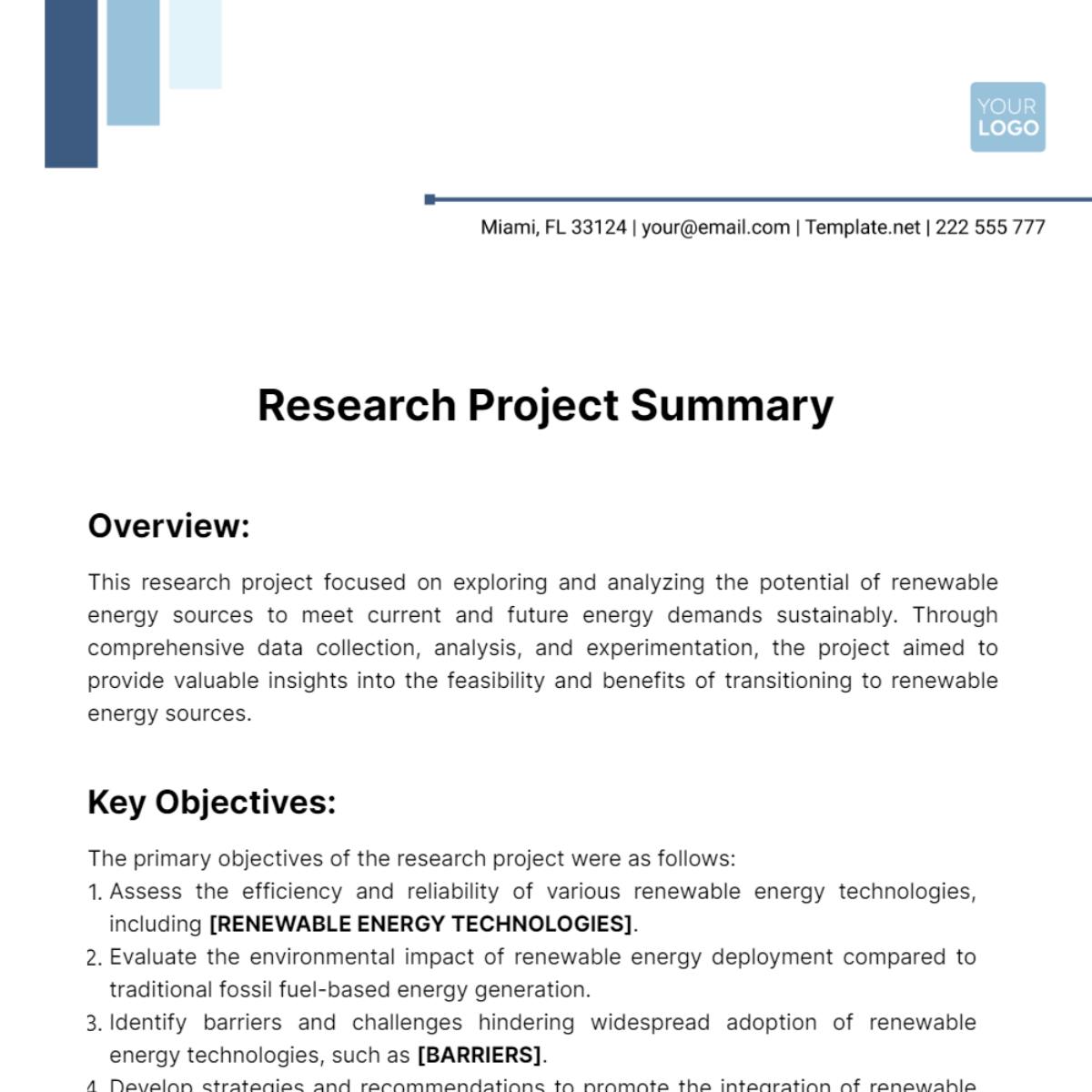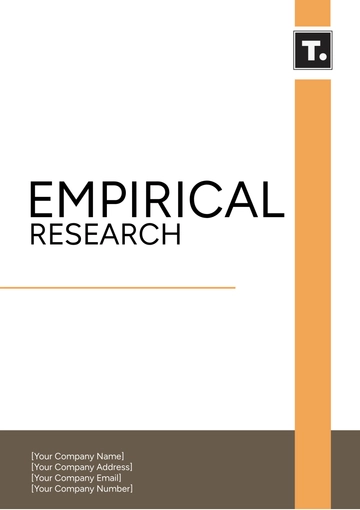Free Research Project Summary

Overview:
This research project focused on exploring and analyzing the potential of renewable energy sources to meet current and future energy demands sustainably. Through comprehensive data collection, analysis, and experimentation, the project aimed to provide valuable insights into the feasibility and benefits of transitioning to renewable energy sources.
Key Objectives:
The primary objectives of the research project were as follows:
Assess the efficiency and reliability of various renewable energy technologies, including [RENEWABLE ENERGY TECHNOLOGIES].
Evaluate the environmental impact of renewable energy deployment compared to traditional fossil fuel-based energy generation.
Identify barriers and challenges hindering widespread adoption of renewable energy technologies, such as [BARRIERS].
Develop strategies and recommendations to promote the integration of renewable energy sources into existing energy infrastructure.
Research Methodology:
The research project employed a multidisciplinary approach, combining quantitative analysis, modeling, and field experimentation. Key methodologies included:
Data Collection: Gathering comprehensive data on renewable energy production, environmental impacts, and energy consumption patterns.
Techno-Economic Analysis: Assessing the cost-effectiveness and viability of different renewable energy technologies, considering factors like [FACTORS].
Life Cycle Assessment (LCA): Evaluating the environmental footprint of renewable energy systems throughout their lifecycle, focusing on [ENVIRONMENTAL ASPECTS].
Stakeholder Engagement: Engaging with industry experts, policymakers, and community stakeholders to gather insights and address real-world challenges related to [STAKEHOLDER ENGAGEMENT TOPICS].
Key Findings:
Aspect | Findings |
|---|---|
Renewable Energy Efficiency | Renewable energy technologies, particularly [KEY RENEWABLE ENERGY TECHNOLOGIES], demonstrated significant improvements in efficiency and cost-effectiveness over the past decade. |
Environmental Impact | Deployment of renewable energy sources resulted in substantial reductions in greenhouse gas emissions and air pollution compared to fossil fuel-based energy generation. |
Barriers to Adoption | Challenges such as [CHALLENGES], intermittency, grid integration, and upfront costs remain significant barriers to widespread adoption of renewable energy technologies. |
Policy Recommendations | Implementing supportive policies, such as renewable energy mandates, tax incentives, and research funding, is crucial to accelerating the transition to renewable energy. |
Impact and Future Directions:
The outcomes of this research project provide valuable insights for policymakers, industry stakeholders, and the scientific community to advance renewable energy adoption. Moving forward, continued research, innovation, and collaborative efforts are essential to overcome challenges and achieve a sustainable energy future.
Conclusion:
The research project on renewable energy sources has yielded valuable findings that contribute to the global effort to address climate change and achieve energy sustainability. By harnessing the potential of renewable energy technologies and implementing supportive policies, we can mitigate environmental impacts and ensure a cleaner, more sustainable energy future for generations to come.
Summarized By:
[YOUR NAME].
- 100% Customizable, free editor
- Access 1 Million+ Templates, photo’s & graphics
- Download or share as a template
- Click and replace photos, graphics, text, backgrounds
- Resize, crop, AI write & more
- Access advanced editor
Discover efficiency with the Research Project Summary Template from Template.net. Crafted for clarity, it's an editable, customizable solution to streamline project reporting. Seamlessly modify content to fit your needs using our Ai Editor Tool. Elevate your summaries effortlessly with this indispensable resource.





























